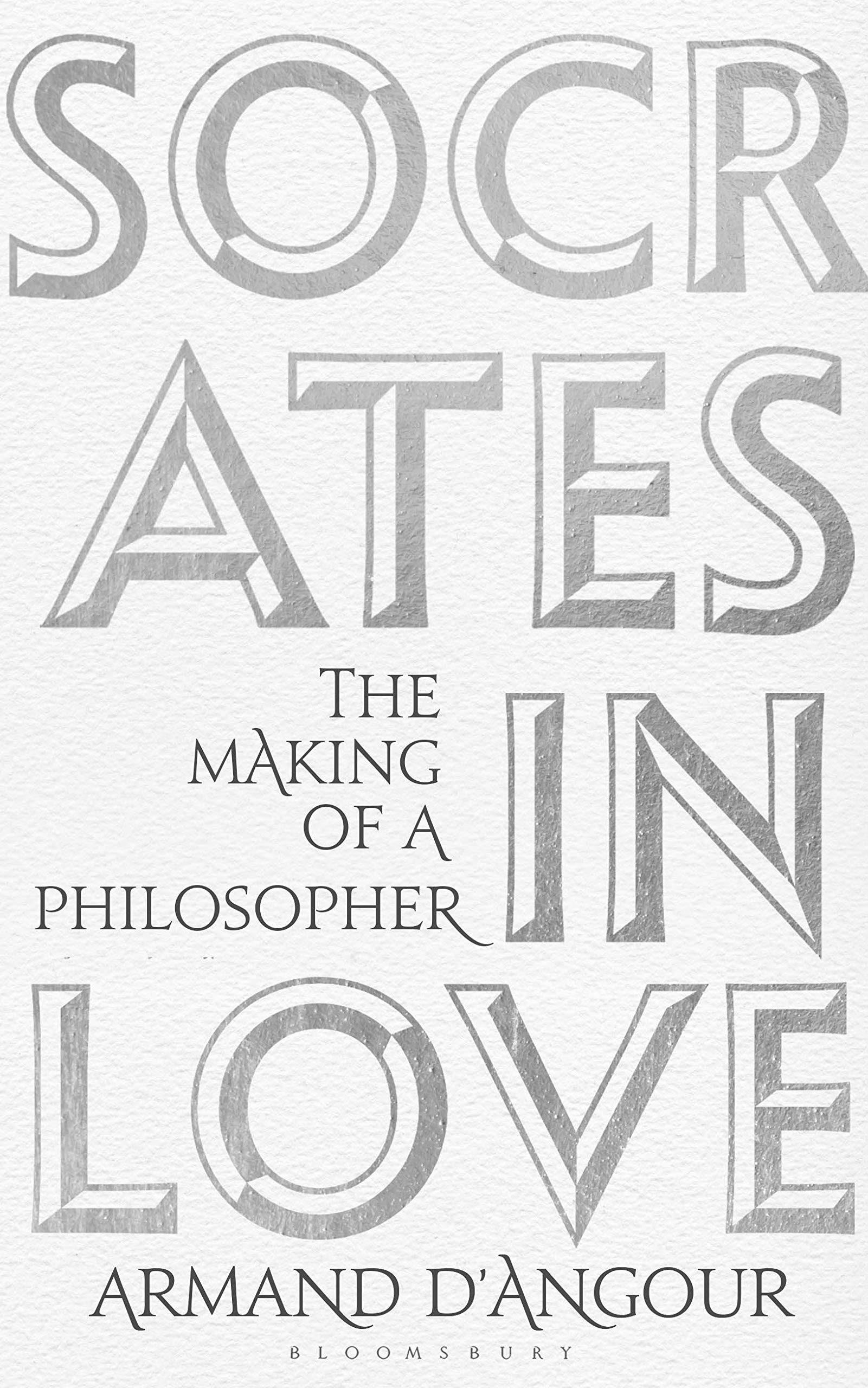Socrates in Love

Full Title: Socrates in Love: The Making of a Philosopher
Author / Editor: Armand D’Angour
Publisher: Bloomsbury, 2019
Review © Metapsychology Vol. 25, No. 5
Reviewer: John Mullen
It is difficult to overemphasize the importance of Socrates, as presented by Plato and other sources, upon western thought. He shifted the intellectual discussion from a proto-science of nature to an inquiry into the lives and institutions of human living. He introduced in clearest terms that important beliefs should be based upon reasoned truth, as opposed to tradition or sophistic speechifying. And he modelled that basis with sharp but respectful dialogue, a specific process of assertion, critique and re-assertion. His death in 399 BCE at the hands of the Athenian people was freely accepted despite an offer of escape as reported in the dialogue Crito. Socrates set the stage and example for all good philosophers, including those working today. We should, therefore, welcome an interesting work that presents a Socrates whom many had not previously known. Armond D’Angour does just this.
About the title. Shakespeare in Love was a well-regarded film, with an inviting title, from 1998. It’s hard to resist the idea that Armand D’Angour’s new book isn’t somehow derivative in regards its title. A difference is that in the earlier work, the character of Shakespeare’s being in that wonderfully intoxicated state was the central focus of the work. This is not the case with this account of Socrates. Still, I wish I had known what the book presents during the many years I introduced Socrates to novice philosophy students. The book does have a central focus. It is to remake the image of the person who Socrates was. But first, let’s look at the love story referred to in the title.
Most of what we imagine of Socrates, derives from his being the main character in the brilliant series of Dialogues written by his follower, Plato. Socrates was born in 469 BCE, Plato in 428 BCE. This means that by the time Plato, let’s say in his late teens (412 BCE?), began to follow Socrates, Socrates was already about 57 years old. One of Plato’s greatest works, The Symposium, depicts a drunken celebration in which each attendee was required to speak about the truest form of Eros or Love. Of course, Socrates’ contribution was central, and brilliant. In it, he attributes his understanding of the ascending forms of love to a priestess, Diotima, whose name translates loosely as “admired by God (= Zeus). During this period the most revered figure in Athens, was the general, orator and political reformer, Pericles, who died of the plague in Athens in 429 BCE. So admired was Pericles that he was sometimes called Zeus, perhaps in the manner that an admirer might say of Elvis, “He was a God.”
Pericles had a non-Athenian woman consort, Aspasia, who was Socrates’ age (and so, 15 years Pericles’ junior), and famous for both her brilliance and Pericles’ utter devotion to her. Here’s the point. When Plato has Socrates, in The Symposium, state that he learned of love from Diotima, the one “admired by Zeus (Pericles)”, then Plato was (likely) referring, obliquely, to a relationship between Socrates and Aspasia. And so, we have “Socrates in Love”, in an intimate relationship with Pericles’ consort and lover. The interesting aspect of this is how the names of Pericles and Diotima are parsed to draw this conclusion, since the author is not the first to suggest the Diotima/Aspasia connection.
I noted earlier that the important task of the book is to alter and broaden Socrates’ historical persona. I think the author is correct that the name “Socrates”, to most who have encountered his story, brings to mind a short, rather ugly, disheveled old man, dressed in a dirty toga of sorts, sandals, with hyper thyroidal eyes wandering the Athenian Agora looking for a discussion, a man of little means who lived off his admirers. The author succeeds in shifting this image, with tales of Socrates’ bravery in battle, details of saving the life of his young friend, Alcibiades, earning the respect of fellow soldiers as a strong powerful man of courage, a man not poor but son of a successful stone cutter during a time of feverish building in Athens. The picture is drawn with great and interesting detail of Athenian life, the politics, the class arrangements, the drawing and re-drawing of the “demes” or neighborhoods where non-aristocrats lived (thus the word, “deme” (neighborhood) and “cracy” (rule by), democracy.
Of course, Socrates death is covered, including an account of the real motives of the leaders of the newly reconstituted democracy, following the surrender to Sparta after three decades of war, to want Socrates punished. For anyone interested, even in passing, in the classical period, 5th century BCE Athens, this is an enjoyable and enlightening work. I recommend it.
John Mullen studied philosophy at Holy Cross College in Worcester, Massachusetts and at Boston University. He has written books on Soren Kierkegaard, Logic, Decision Making (co-authored with Byron M. Roth). His novel, The Woman Who Hated Philosophers, was published by Swallow Tail Press in 2017, and his stories appear in various literary journals. He lives and writes in Dresden, Maine.
Categories: Philosophical
Keywords: Socrates, philosophy
